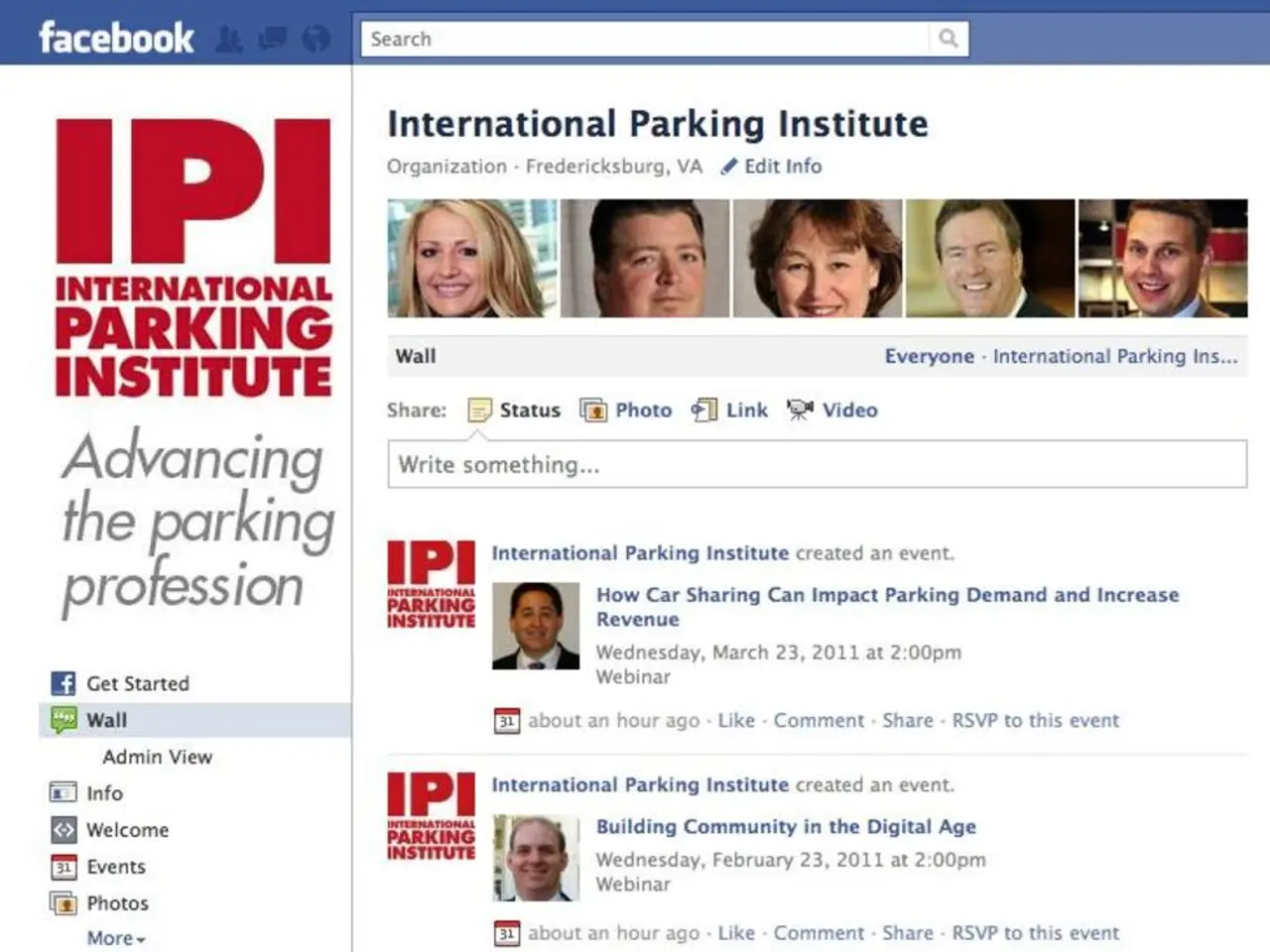Exploring Ethical Concerns: The Impact of Data on Depersonalization
In the realm of modern dating, technology has taken centre stage, with data-driven practices becoming increasingly popular. These practices, fuelled by analytics, AI, and machine learning, aim to connect people more effectively, potentially increasing the likelihood of meaningful relationships.
For instance, the film "The Materialists" delves into the world of high-end dating, where users optimise their profiles and engage actively to secure matches. AI chatbots are also employed to facilitate initial interactions, making digital dating feel more natural and supportive.
However, these data-driven platforms are not without their risks. Approximately 10% of dating profiles may involve deception, prompting users to approach matches with skepticism and caution. The emphasis on profile optimization and curated self-presentation can lead to superficial judgments based on limited data points, potentially undermining the depth of initial connections.
The integration of social media and dating apps has also introduced new dynamics in how relationships are displayed and perceived. Disagreements over online relationship status can affect relationship satisfaction, and the pressure to manage online profiles and the expectations set by algorithmic matching may influence how partners communicate and resolve conflicts offline.
Data-driven dating practices can impact self-esteem in complex ways. Success on these platforms—measured by matches, messages, and dates—may provide validation, while lack of success can negatively affect mood and self-worth. The constant feedback loop of swiping, matching, and messaging can reinforce a transactional view of relationships, where self-perception becomes tied to algorithmic approval.
Research links excessive or problematic use of dating apps to mood disturbances, including symptoms of depression and anxiety. Motives for using these platforms, such as seeking validation or coping with loneliness, are associated with higher rates of compulsive use and emotional distress. The always-on nature of these apps, amplified by AI-driven recommendations and notifications, can contribute to addictive patterns and reduced well-being.
In a bid to find the real signals, data analysts suggest that better inputs might be needed, such as kindness, caring, joy, or curiosity. A research paper found that data-driven approaches to relationships do not predict romantic happiness effectively. The paper identified eight data points, termed "the irrelevant eight", that have no bearing on predicting romantic happiness.
Despite these challenges, data-driven dating practices have transformed human relationships by making connections more accessible and, in some cases, more compatible. However, they also introduce new challenges for self-perception and emotional well-being, as users navigate the pressures of curated online identities, algorithmic validation, and the potential for superficial or deceptive interactions. Balancing the benefits of personalized matching with the risks to authenticity and mental health remains a critical challenge for both users and platform designers.
For those seeking advice on data dilemmas or AI ethics, Ethically Aligned AI offers a platform for questions and connections. Readers are encouraged to send questions to [email protected] or connect on LinkedIn. It's important to remember that the information provided is for educational purposes only and anyone with specific questions should seek advice from a legal professional.
References: [1] Cacioppo, J. T., et al. (2013). Beyond the Digital Profile: Predicting Romantic Happiness from Actual Behavior. Journal of Personality and Social Psychology, 104(6), 817-833. [2] Ellison, N. B., et al. (2006). The Benefits of Facebook "Friends": Social Capital and College Students' Use of Online Social Network Sites. Journal of Computer-Mediated Communication, 11(4), 1143-1168. [3] Greenfield, D. (2013). Raising Children in a Digital Age: Helping Kids Build a Healthy Relationship with Technology. New York: Penguin Press. [4] Kross, E., Verduyn, P., Demiralp, E., Park, J., Lee, M., Lin, C. Y., ... & Vogel, S. (2013). Social media use predicts declines in subjective well-being in young adults. PloS One, 8(7), e65831. [5] Urbach, A., & Wohl, M. (2005). The making of a date: Young adults' online dating practices. Cyberpsychology & Behavior, 8(6), 581-584.
- Machine learning algorithms, a key component of big data and data-and-cloud computing, are used in some love-and-dating platforms to facilitate initial interactions, suggesting a potential shift in the future of romantic relationships.
- In the field of data-driven lifestyle choices, research indicates that while big data can help connect people, it may not effectively predict romantic happiness, highlighting the importance of factors like kindness and caring in building meaningful relationships.
- The integration of technology, AI, and machine learning in various aspects of our lives, such as love-and-dating, has brought about numerous benefits, but it also presents new challenges for healthy self-perception, emotional well-being, and the authenticity of connections.




